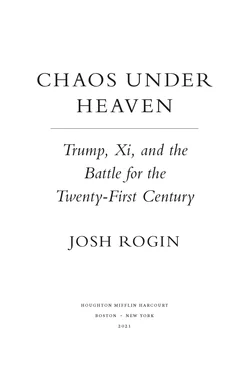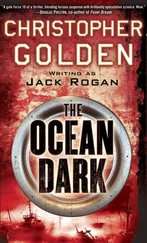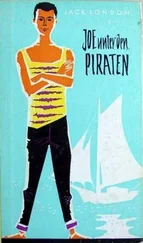Beijing had come bearing gifts as well: while Xi was at the resort, the Chinese government approved three provisional trademarks for Ivanka’s company, allowing her to sell jewelry, hand bags, and spa services in China.
There’s no evidence of a quid pro quo or even that Ivanka was granted the trademarks for any specific reason. Beijing wanted to co-opt her for the sake of it. By giving her a huge gift—and by her accepting it—the soft corruption of family-to-family favor trading, so common in China, was now under way in America as well, and with zero cost for Beijing. In the years ahead, China often would approve Ivanka’s trademarks before big trade-related events between Trump and Beijing.
The family was happy, Gary Cohn and Mnuchin were happy, Trump was happy. Xi was elated. Only one group wasn’t pleased. As far as the hawks and hardliners were concerned, the weekend hadn’t gone well at all.
Bannon and his cohort did, however, see a silver lining in the clouds that hung over the summit. Trump had given the Wall Street guys a chance to try and make a quick deal with China that wasn’t terrible. If Beijing reverted to pattern and failed to really negotiate anything substantive—as the hawks fully expected—then Mnuchin and Ross’s plan would backfire and Trump might turn to a harder approach.
“We lost that fight but only temporarily and tactically,” Pottinger later told me. “There was a one-hundred-day plan. But I knew that was going to be totally futile and of course the Chinese proved it was futile.”
Where’s My Peter?
At the end of the weekend, after Xi and his delegation had left the premises, Trump convened the whole US team for a “hot wash” debrief in the garden patio at the rear of Mar-a-Lago’s main building. There, in front of the full team, Cohn gave a presentation about the trade talks between the US and Chinese sides, touting the progress that was made and the path forward.
A statement released later by the White House said that, in addition to the Comprehensive Economic Dialogue, there would be three other parallel high-level “dialogues,” a Diplomatic and Security Dialogue, a Law Enforcement and Cybersecurity Dialogue, and a Social and Cultural Issues Dialogue, whatever that meant. These dialogues would be the method, according to the White House, to address not only Chinese trade practices but their industrial, agricultural, technological, and cyber misbehaviors as well.
After Cohn finished his remarks, Trump looked around the room to find the one person he hadn’t heard much from over the weekend. “Where’s my Peter?” he asked, referring to Navarro. “You all have been very, very unfair to him.”
Navarro, standing at the back of the room in his black sneakers, looked up. Trump whistled him over. He was on. He was going to get to speak to the whole team for the first time all weekend—and he was not about to waste the opportunity.
Navarro hadn’t even been officially invited to the Mar-a-Lago summit; Bannon had pulled him onto the plane at the last minute. Navarro hadn’t been allowed to sit at the table for any of the meetings between the US and Chinese delegations. At some of them, he could sit in the back with lower-level staff. But Kushner, Mnuchin, Cohn, and Ross had made sure that the Chinese visitors never had to stare at him directly across a table.
Now, Navarro went at Mnuchin and Cohn on full blast. He said that everything the Chinese side had put forth over the past two days was nothing but lies.
“You’ve got to be fucking kidding me, what are we, stupid?” he said. “Are we really going to do another SED [Strategic and Economic Dialogue] and just change the letters around to CED and pretend we’re doing something different than the last few administrations?”
Trump just nodded and pointed to Navarro as if to say, “Listen to this guy.” Trump was making it clear that he was going to give Mnuchin, Ross, and Cohn what they wanted, a chance to prove that they could convince Beijing to make a great trade deal that addressed Trump’s core grievances without exerting any real pressure on China. But Trump wanted them to know there was a plan B, that it was Navarro’s plan—and that, if they failed, he would turn to it.
“That’s when people knew, don’t fuck with Peter,” one attendee told me. “Don’t think you can remove him, because his worldview is closer to that of the president’s [worldview] than that of any other person sitting around the table.”
The writing was on the wall. If Navarro, Bannon, and Pottinger were right, the Chinese would simply fail to give any real concessions until or unless they were coerced into doing so. And if the hawks were right, they might have a shot at shaping Trump’s China policy before too long. But for now, they had to take a back seat and let Mnuchin, Ross, and Cohn try to prove them wrong.
“They sold Trump so hard on this thing,” Bannon said. “All we had to do is pull our knives out and just wait.”
Rat Meat
As soon as the team got back to Washington, Mnuchin and Ross set their sights on getting a trade deal done before the expiration of the one-hundred-day timeline agreed to by Trump and Xi. If they could only give the president a trade deal that was politically defensible, they thought, the whole idea of tariffs and trade disruption would become irrelevant, the stock market would break records, and US-China relations could be saved.
They ran into trouble right from the start. In May, Ross announced that the two sides had struck a landmark agreement—China would be able to sell chicken inside the United States and US beef exporters would regain access to the Chinese market they had been shut out of since 2003. The deal also contained promises to open up Chinese markets to US financial services companies and US gas exporters. But while some beef exports did happen, they were not nearly on a scale that would have taken a chunk out of the multi-hundred-billion-dollar annual trade deficit. Chicken from China is not really in demand in America, in part due to a long history of Chinese food export scandals that included selling rat meat as lamb, passing off drainage ditch oil as cooking oil, and sending Americans baby formula contaminated with melamine, which causes kidney stones.
The idea of “reciprocity” in US-China relations is a big theme of the Trump administration’s approach. It sounds easy: China buys US beef, America buys Chinese chicken. But in this example, as in many others, the concept of reciprocity falls short. Americans don’t actually want the same goods and services from China that Chinese people want from the United States. Trading beef for chicken doesn’t really make sense. Of course, trying to manipulate the trade deficit by setting arbitrary quotas while ignoring real market forces like supply and demand doesn’t make sense either. But the commerce secretary thought Trump and the public would buy what he was selling. “This is more than has been done in the whole history of U.S.-China relations on trade,” Ross told reporters on May 12. “Normally trade deals are denominated in multiple years, not tens of days.”
Despite these boasts, the chicken-for-beef deal was not nearly enough to stave off Trump’s appetite for the kinds of tariffs that would really get Beijing’s attention. The most obvious targets for tariffs were aluminum and steel. Ross was no stranger to using steel tariffs against Beijing; in fact his companies had benefited from that exact tactic during the George W. Bush administration. But Ross’s vast experience doing business in China cut both ways. In 2008, he entered into a joint venture with state-owned China Huaneng Group, led by a son of former Chinese premier Li Peng, better known as the “Butcher of Beijing” for his role in the Tiananmen Square massacre. China Investment Corporation, a state-owned sovereign wealth fund, contributed $500 million to Ross’s investment in Diamond S Shipping, a company based in Connecticut.
Читать дальше











